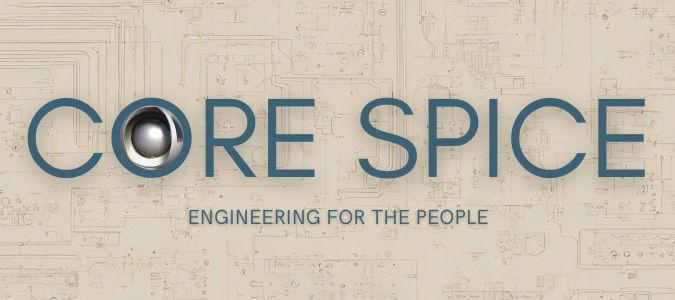
The job title “quality assurance manager”—in short, “QA manager”—may suggest that the job is boring, ambiguous, and uncreative. However, one species of QA manager deserves particular attention: the “process quality manager.”
Ever since the Japanese auto industry nearly annihilated its once-proud US-American counterparts, quality management has become a driving force to reckon with. Total Quality Management, popularized in the 1980s, has become a much-hyped term. Interestingly, while the term “quality management” has been popular for many years, the job title “quality assurance manager” has not been clearly defined. The reason for this may lie in the term “quality”, which can be roughly broken down into two distinctions:
- product quality manager, and
- process quality manager.
The product quality manager ensures that related products adhere to their specifications. In that regard, the test manager may be viewed as an equivalent job description.
Process quality management, on the other hand, is not so easily defined and thus particularly interesting. Adhering to standard processes implies that processes are standardized, that the relevant “best practices” are well-defined, and that adherence is easy to verify. That’s where theory and reality often clash. In my favorite industry, the automotive business, process quality is emphasized by the requirement to follow the Automotive SPICE standard on system and software development. The complexity of this standard poses a significant challenge. But what does it take to be a QA process manager? This is an essential question, as I have seen QA process managers come and go rapidly, and I was often stunned by the hiring process. Drawing on my own experience as well as the expertise of automotive projects I was involved in, I would like to share some advice on how to survive and thrive as a QA process manager (I like using “QAM” for short).
A) Experience
The most important thing is experience, experience, experience. Did I already mention experience? And not just any experience: you must have been actively involved in software and system projects for many years. I recommend asking for different assignments and accepting even challenging projects to learn as much as you can. Remember that you can learn the most from failed projects. Experience needs time to mature. If you have served as a software developer for three years, project manager for one year, test engineer or test manager for three years, configuration manager for two years, lead engineer for three years, and requirements manager for two years, you are perfectly prepared to be a QAM.
B) Educational background
The kind of formal education is essential. A computer science degree, particularly in software engineering, is paramount to understanding all aspects of a system-developing organization. Electrical engineering is also very closely related, especially in the automotive sector. However, mechanical engineering is a very different animal, and professions like economics or sociology will not help much.
C) Memorize the relevant standards
If you have the aforementioned mix of project experience and formal training, formal training is mostly a waste of time. The truth is that most consultants lack the practical experience necessary to help trainees translate information into practical knowledge. Practical project experience is the key to understanding complex standards like Automotive SPICE. One or two books on your standard will give you all the training you need.
D) Respect your engineers
The so-called soft skills are even more important than hard skills, such as knowledge, formal education, or IQ. If you don’t genuinely love engineers, you will not have the patience and the persistence required for the job of a QAM. Mutual respect is the only way to conduct this business, as, after all, the management’s short-term requirement is to deliver on time, while quality seems to be automatically implied. This is a common mistake that often leads to irritation. As a QAM, you are usually put between a rock and a hard place – succumb to the deadline or uphold the process definition. There is no standard solution to this dilemma: you must train yourself in rhetorical skills (see next point). As a QAM, you need to understand the essence of the engineers’ motivation. Think about it: 99% of all engineers have not paid tens of thousands of dollars in tuition fees and suffered years of hard work to become rich. What makes an engineer tick? What is the source of their passion? It is worthwhile to contemplate this. Once you understand this point, you will be able to align your job as QAM with the management’s needs.
E) Know your authority and independence
Independence of the QAM is a crucial aspect of quality assurance. The QAM must not report to the project manager in a project organization. Otherwise, the objectivity of the process quality will be compromised. That poses some social challenges since you are formally part of the project organization but are, in a way, excluded from the team dynamics in several ways. Loving your engineers has its limits, obviously, when the project organization is under critical pressure and is expected to deliver important milestones. The tension that stems from such situations is a natural consequence of an independent QAM. You will have to develop thick skin since quality goes first for you (and not the deadline).
In a way, functional safety responsibility (safety management) is exposed to similar challenges, and it would be natural for a QAM and a safety manager to be the same person responsible for a project.
F) Develop some serious negotiation skills
Communication is a crucial skill of a QAM. In addition to the tension between management and engineers, multiple stakeholders are involved, some of whom are critical, such as the customer and external assessors/auditors. Often—if not in most cases—the customer, typically the customer’s project manager, has different goals than the customer’s process quality manager. There are multiple aspects to the automotive business, including development costs, revenue per unit sold, and standard quality requirements (e.g., Automotive SPICE at level 3 in the HIS scope), among others. This is nothing for faint hearts.
G) Learn to listen
This is another essential soft skill that is often overlooked but is crucial. True, a QAM must constantly ask questions and thus is usually an active participant in discussions. But if you continuously talk, you will miss a lot of verbal and non-verbal information. By simply listing and actively encouraging your engineers to discuss, you will gain a comprehensive understanding of what is happening in any given project. Often, all the root causes are openly expressed during audits. Whenever possible, depending on the QA checklist, use the open questions technique and keep your ears open.
H) Trust
Listening to your team will help you learn a great deal, but you must never misuse this information. Anonymize essential findings before discussing them with the management. If you cannot anonymize, discuss the next steps with your engineers before presenting them to management. Maintaining mutual respect, integrity, and confidentiality is paramount to the job of the QAM. If the team thinks you are a management spy, your job will be ineffective, frustrating, and tiresome.
I) Unmask manipulative behavior
For some people, it could be said that there’s a way you can tell if they’re manipulating people: if their lips are moving. This isn’t necessarily a bad thing if you think about it. In a way, without exploiting others, nothing ever gets done; even a military order is just followed because of a complex set of implicit or even explicit threats and incentives. A good QAM, however, will instantly understand undesired influence factors. External factors may, for example, be a current management or methodology fad such as “V-model” or “agile development”. This is beside the point. The truth is that nothing is ever truly new; project management has remained essentially unchanged since the construction of the Egyptian pyramids. You need to understand the common-sense aspects of everything, especially project management and development process management. The same applies to other elements, primarily involving dialectical tactics. Suppose you notice that you or anyone in your organization is a victim of manipulative behavior. In that case, the quickest remedy is to identify the behavior and express it openly in a calm and educated manner.
J) Learn continuously
I’ve already mentioned books, but I want to emphasize this point. It sounds like an obvious truism, and it may sound somewhat awkward, but from my experience, a good book is the ultimate accelerator of your career as QAM. There is no substitute for a good book on management and engineering, and no excuse to ignore them. Audiobooks are beneficial when you commute and travel frequently. You may seek a more suitable profession if you don’t feel stimulated by an excellent technical read.
As mentioned, I believe the name quality manager prompts somewhat misleading associations. An effective QA process manager is a complex and demanding profession. It requires a broad knowledge and a challenging set of soft and mental skills. Do names matter? I firmly believe they do. In fact, I will explore alternative QAM role names in a subsequent article.
Let’s start a conversation on LinkedIn or X.com (formerly Twitter).
I am a project manager (Project Manager Professional, PMP), a Project Coach, a management consultant, and a book author. I have worked in the software industry since 1992 and as a manager consultant since 1998. Please visit my United Mentors home page for more details. Contact me on LinkedIn for direct feedback on my articles.






Be the first to comment